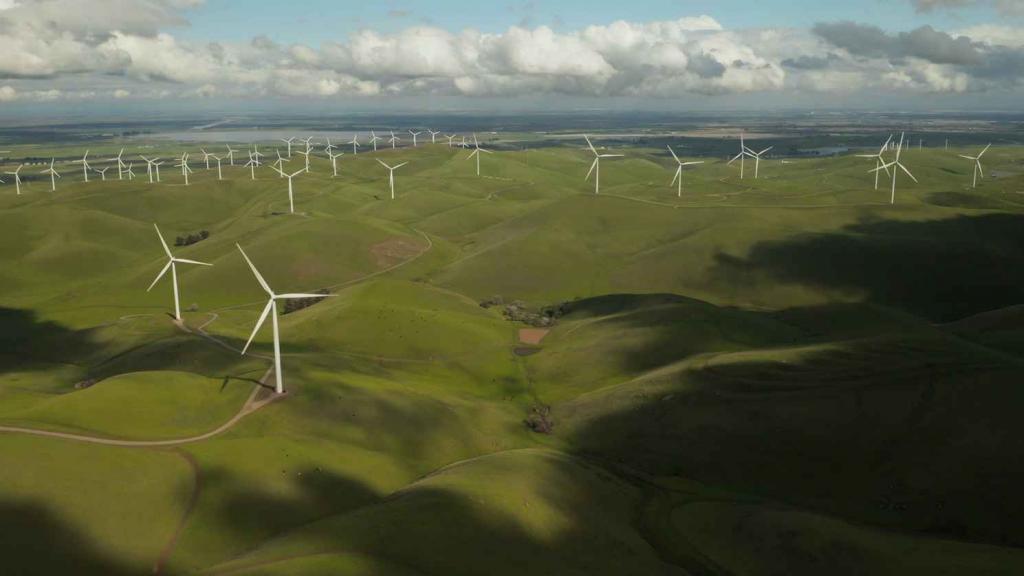The global effect of waste is not going to disappear anytime soon. Our society’s reliance on plastic won’t either but there are many things we can do to push towards better waste management and curb waste. Documentaries serve to inspire us towards living a sustainable lifestyle. They give us new insight on what problems we are currently creating, facing, and possible new solutions to these problems. Here are 10 of our favourite documentaries (organized into 4 sections) to motivate you towards sustainability and trying to live a zero-waste lifestyle.
Plastic
1. Plastic Paradise (2013)
Journalist Angela Sun in this documentary Plastic Paradise goes on a personal journey of discovery to uncover the mysterious Great Pacific Garbage Patch and the effects it has on the local wildlife.
The film shows disturbing images of what happens to the wildlife out on the Pacific’s Midway Atoll. Dead albatrosses are cut open to reveal large amounts of plastic stuffing their belly. Plastic that we commonly see in our own trash cans outside: bottle caps, zip-ties, and lighters as examples.
What the film brings to the forefront is that plastic isn’t inherently evil, but there is no accountability to where plastic waste goes or can be reused. The producers of plastics aren’t required to spend money cleaning up plastic waste in the ocean or be responsible for what happens to the plastic after the product is used.
2. Plastic Ocean (2016)
Plastic Ocean is an award-winning documentary about humanity’s addiction to plastic and how it hurts marine life and our oceans. A Plastic Ocean documents how plastics affect all forms of sea birds and marine animals. Large pieces of plastic when eaten may cause the death of animals through obstruction of their airways and digestive tracts. Smaller plastics will break down into small particulates that enter the food chain where they attract toxins. These toxins are stored in the marine animal’s tissue and then eventually we come into contact with them through the consumption of seafood.
The documentary leaves us with no quick fix. Our society is so ingrained with the use of plastics that it is impossible to eliminate them completely. It does however show the viewer that new strategies can be implemented and are being researched to reduce the impact of plastics.
3. Tapped (2009)
Tapped examines the bottled water industry and its long-term effects socially, economically, and ecologically.
Single-use plastic is obviously bad for the environment but there’s more to it than that according to the film. The film advises that bottled water isn’t good for our health. Bottled water is as bad or worse than unfiltered tap water and plastic leaks chemicals all the time.
The documentary also goes into discussing the dark side of the bottled water industry. That the bottled water companies are taking a lot of water from drought-stricken areas with little or no regulation.
The gist of it all is that a lot of these processes seem unnecessary. We are increasing the impact of drought, using a lot of oil to create bottles hence increasing plastic waste, and spending more money on water when we could just buy a reusable water bottle and be drinking filtered water.
Food Waste
4. Just Eat It! (2014)
The unique aspect of Just Eat It! Is that it follows the filmmakers as they pledge to quit grocery shopping and survive only on discarded food. The documentary shows you a glimpse of the billions of dollars worth of edible food that is thrown away yearly and the issue of food waste from farms, through retailers to consumers.
Food must meet rigorous standards to be sold at the grocery store. Imperfections are not allowed. One very memorable scene from the film is watching as a truckload of bananas is wasted because the angle of the curve is slightly off from the expected norm.
A memorable quote from the movie: “A large part of dumping is simple economics. It’s cheaper to throw it away than to do something more constructive.”
5. Wasted! The Story of Food Waste (2017)
Wasted! The Story of Food Waste is a documentary that examines the way people buy, cook, recycle, and eat food and ways people are creatively preventing food waste. Many statistics about food waste from the show are eye-popping. One-third of all food that’s produced is never eaten; 1.3 billion tonnes of food to be exact. A head of lettuce will take 25 years to decompose in a landfill.
It discusses how our culture and social norms affect the way we perceive food. A lot of food is wasted not because it’s inedible but because we have not “learned” how to prepare it or are told it’s inedible. Sell-by dates and expiration dates, as explained in the film, are safe to eat even after that “sell-by” date has passed. They may not be as fresh anymore, but they are perfectly good food.
The takeaway from this film is that we can all take action to reduce food waste. You can choose to learn to cook, care about food, demand change, spread the word, eat real food, and shop smart.
General Waste
6. Trashed (2012)
Trashed is a Cannes Film Festival nominated documentary by actor Jeremy Irons about his investigation into the global impacts of mankind’s consumerism and the pollution it generates.
Trashed focuses heavily on the toxins found in garbage and how they can affect our bodies. He also takes viewers on a journey to some of the most beautiful places in the world to show the extent and effects that global waste has on them. Many of these beautiful places are tainted by pollution.
This film calls for us to be responsible for the waste we have produced while showing examples of the efforts that have been done by various people around the world.
7. True Cost (2015)
The fashion industry is the second most pollutant industry after oil and gas according to True Cost. The film focuses on the social and environmental impact behind the clothing you own.
Although the price of clothing has been decreasing for decades, human and environmental costs have increased drastically. The rise of fast fashion and cheaper prices makes it so companies will outsource to countries such as Bangladesh, Cambodia, and China, where working conditions are less regulated and factory disasters are a part of doing business. We get a glimpse into the lives of the people who suffer to create the clothing we wear.
The constant revolving door that is fast fashion means that clothing will be rotated or tossed out at a rapid rate. An average American wastes 37 kg of textiles a year.
An interest in fashion isn’t a prerequisite for viewing this film. It will change the way feel about your clothes.
8. Tomorrow (2015)
Tomorrow by Journalist and NGO director Cyril Dion and filmmaker Melanie Laurent focuses on many of today’s environmental challenges, and how practical solutions are being implemented or used across the world.
Tomorrow is a refreshing change of pace from the usual doom and gloom common to sustainability documentaries in that the core of the film is on practical solutions to curb waste and concrete examples of solutions across 10 different countries to environmental and social challenges present in the 21st century.
An educative documentary worthy of a watch.
Minimalism
9. Minimalism: A Documentary about the Important Things (2015)
Minimalism is an eye-opening documentary that focuses on two men, Joshua Fields Millburn and Ryan Nicodemus, as they drastically reduce their possessions and stick to the bare necessities. It gives a glimpse into the lives of minimalists and discusses our relationship with stuff.
Zero waste and minimalism tend to intersect at many points because they have similar values. Not producing more than is needed, investing in reusable or quality items, and reducing over-consumption. Over-consumption is a huge problem. It worsens climate breakdown, increases pollution and it strips the Earth of natural resources.
Living a more minimalist life can help us become happier by making us value what we do have more and help the planet at the same time. A win-win.
10. No Impact Man (2006)
No Impact Man follows the life of a man and his family as they try to lead a zero net impact in waste for a year while living in New York City. It’s a documentary about a family as they experiment with trying to produce the least amount of waste possible. The only electricity he is running by the end of the project is the electricity to run his laptop to continue documenting, and this is powered by a rented solar panel on the roof of the building. The extremes the family will do to attempt to succeed at this goal are sometimes silly and sometimes daunting. Buying in bulk from local producers and supplies: Good. Keeping milk without refrigeration: That’s a no.
The main takeaway from this film is learning the concept that we all have some things we can do to work towards sustainability but that it’s a process, carefully look around you and see what can be safely done.
Closing Thoughts
Not only are there many films on zero-waste but there are many resources online and free documentaries on YouTube. As with all information, one should vet the material and try to decipher fact from fiction.
Nonetheless, one truth is that we can all work towards producing less waste. One step at a time, we can all make a difference towards a more sustainable and environmentally friendly society.

